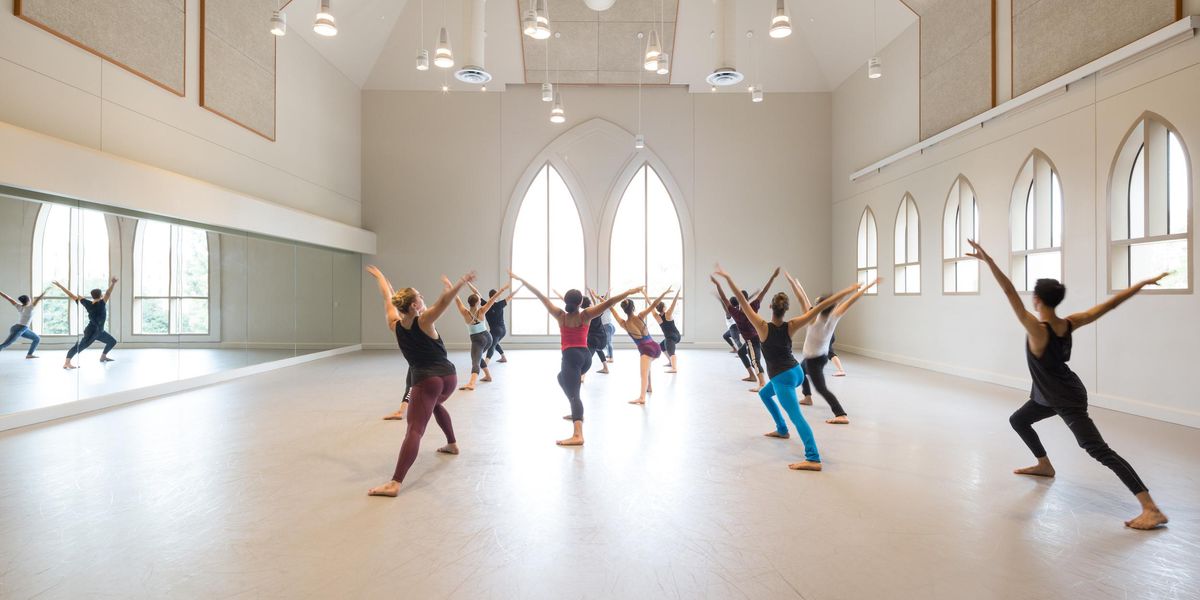Your Career: Don't Touch Me Like That!
In the dance studio, dancers’ bodies are tools for choreographers and artistic directors. The collaborative nature of the work—frank discussion, hands-on corrections and partnering in skimpy clothes—requires trust. That intimacy can lead to miscommunications, and to outright sexual harassment. “The culture of the studio, where touching is part of correcting the body, is very different from that of a regular office,” says Elena Paul, director of legal and business affairs for Alvin Ailey. Dancers can find themselves in uncomfortable situations with their superiors; a hand smacking someone’s rear in approval, a suggestive comment about someone’s personal life or a persistent invitation to go on a date are just a few examples that both male and female dancers cite. Yet the same safeguards that protect workers in the office are there to protect dancers in the studio, as well.
Do you have a problem?
The employee manual at Hubbard Street Dance Chicago defines sexual harassment as “unwelcome conduct, whether verbal, physical or visual” that “affects tangible job benefits, unreasonably interferes with an individual’s work performance, or creates an intimidating, hostile or offensive working environment.” Melissa Woods, an employment attorney with New York’s Meyer, Suozzi, English & Klein, points out that “intent is not relevant.” It doesn’t matter if a comment was meant as a joke; it’s harassment if it makes you feel uncomfortable or uneasy.
What are your rights? There are federal, as well as local and state, protections against sexual harassment. The Civil Rights Act of 1964 prohibits discrimination based on gender. The American Guild of Musical Artists, which represents dancers in many companies, underscores that sexual harassment does not fall under a mere contract violation. “It’s actually a violation of the law,” says Alan Gordon, the union’s executive director. This means that all employers, including dance companies of any size, union or nonunion, are required to have a process by which dancers can report sexual harassment, as well as a duty to investigate any claim, to remedy the work environment and a policy of non-retaliation for the complaint.
What if it happens to you?
First, speak up. You need to communicate to the harasser that the behavior is unwelcome. Often, that can be enough to check further problems. If you feel you can’t or if the harassment continues, report it to another superior in the company’s hierarchy. Kristen Brogdon, Hubbard Street’s general manager, says it is common for employment manuals to list more than one option for reporting. “Supervisor, executive director or board chair are all options—a dancer can go to the place they feel most comfortable—because it is important to have more than one avenue for complaint.”
According to Woods, once a supervisor knows harassment has occurred more than once, there is a legal obligation to investigate it and remedy it. Most complaints end there; it’s in the best interests of the dancer and company to resolve the problem and avoid litigation. But Woods acknowledges that “when you are hired by a small company for the short term, follow-up on grievances becomes less regularized.”
Be sure to document everything: Write down all the details of what happened, when you first reported the incident and to whom, how it was handled and all related communication, whether verbal or written, in order to facilitate any investigation or questions. If you still continue to have a problem, you can call AGMA and file a complaint with the Equal Employment Opportunity Commission. AGMA would contact the company directly about the allegation, perform an independent investigation and pursue it as a violation of the law if they found it to be one. Gordon encourages both AGMA members and nonmembers to call the union if they are having a problem or need more information because “what hurts a dancer in any place hurts dancers everywhere.”
Free Legal Advice
Where can you turn when you need legal help? If you are based in New York City, you can try Volunteer Lawyers for the Arts (vlany.org; 212.319.2787). They provide free counsel on a range of legal issues like copyright law. In other locations, your local bar association can provide pro bono legal advice and referrals to experienced lawyers. Find the nearest chapter at americanbar.org.
Speaking Truth to Power
Many women have been reluctant to talk about sexual harassment for fear of being defined by it. But in response to the shootings in Santa Barbara, California, which appeared motivated by a hatred of women, a Twitter campaign has launched that gives voice to the kind of harassment, large and small, that many women say they experience daily. You can follow their moving testimonies using the hashtag #yesallwomen.
Photo: Thinkstock




